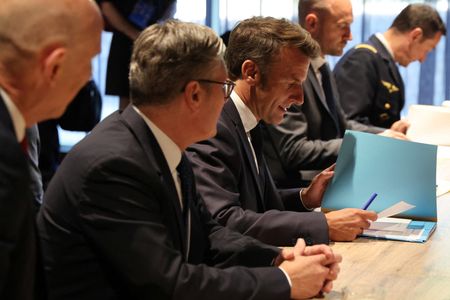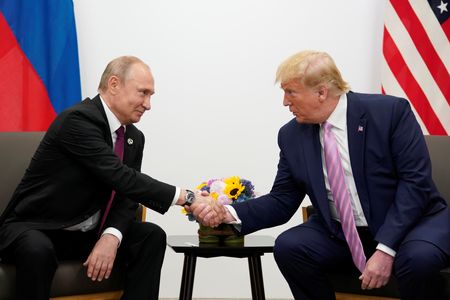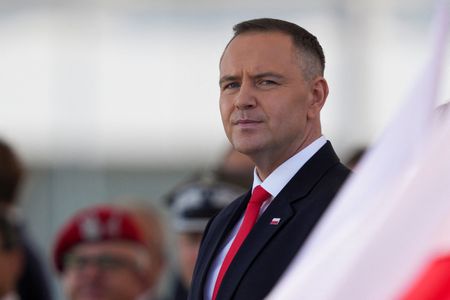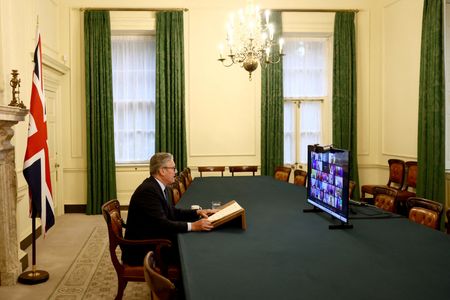By Michel Rose
PARIS (Reuters) -France, Germany and Britain have written to the United Nations to say they are ready to reinstate sanctions on Iran if it does not return to negotiations with the international community over its nuclear programme.
The foreign ministers of the so-called E3 group wrote to the U.N. on Tuesday to raise the possibility of “snapback” sanctions unless Iran takes action, according to a letter shared by the French foreign ministry.
The letter was first reported by the Financial Times and France’s Le Monde newspaper.
“We have made it clear that if Iran is not willing to reach a diplomatic solution before the end of August 2025, or does not seize the opportunity of an extension, E3 are prepared to trigger the snapback mechanism,” the ministers said in the letter.
They added that they had offered Iran a limited expansion to allow for direct negotiations between the United States and Iran, but that the offer had remained unanswered by Iran so far.
The three European countries, along with China and Russia, are the remaining parties to a 2015 nuclear deal reached with Iran – from which the United States withdrew in 2018 – that lifted sanctions on the Middle Eastern country in return for restrictions on its nuclear programme.
The E3’s warning comes after “serious, frank and detailed” talks with Iran in Istanbul last month, the first face-to-face meeting since Israeli and U.S. strikes on the country’s nuclear sites in June.
Iranian lawmaker Manouchehr Mottaki, who served as foreign minister from 2005 to 2010, said Iran’s parliament “has its finger on the trigger to withdraw from the nuclear Non-Proliferation Treaty (NPT)” if international sanctions were reimposed after any E3 invocation of the snapback mechanism.
Mottaki told Iran’s semi-official Defa Press that parliament would approve a bill to withdraw from the 2015 nuclear deal within 24 hours if the E3 invoked the snapback mechanism.
During its 12-day war with Israel in June, Tehran said its lawmakers were preparing a bill that could push it towards exiting the treaty, ratified by Tehran in 1970. The treaty guarantees countries the right to pursue civilian nuclear power in return for requiring them to forego atomic weapons and cooperate with the U.N. nuclear watchdog, the IAEA.
(Reporting by Michel Rose in Paris, additional reporting by Surbhi Misra in Bengaluru and Dubai Newsroom; Editing by Michael Perry and Gareth Jones)










